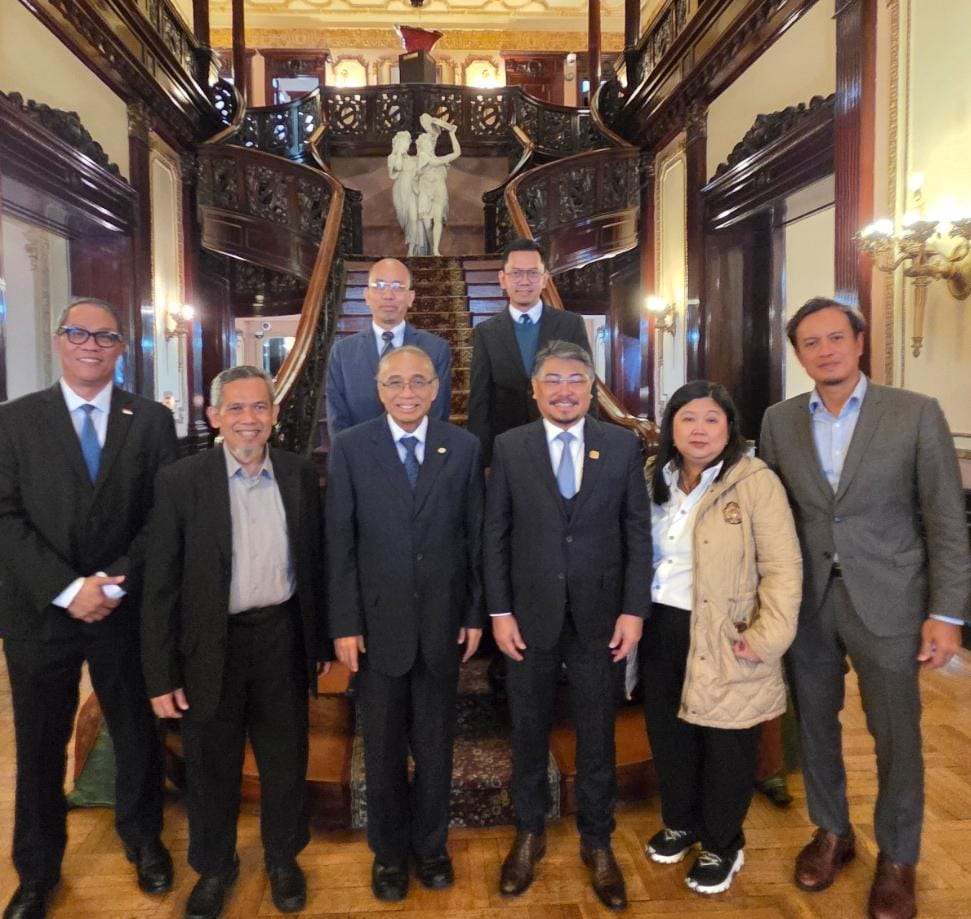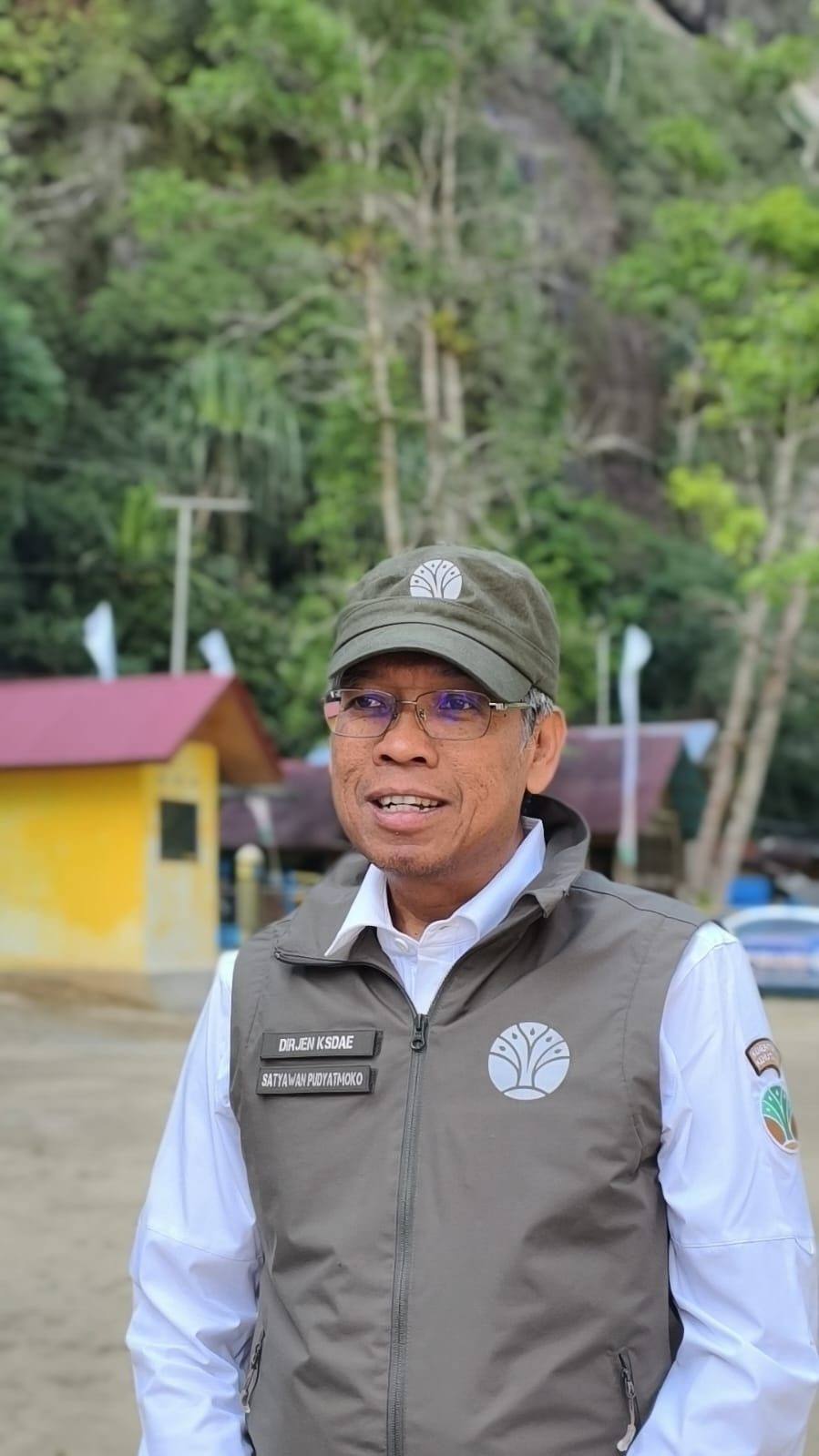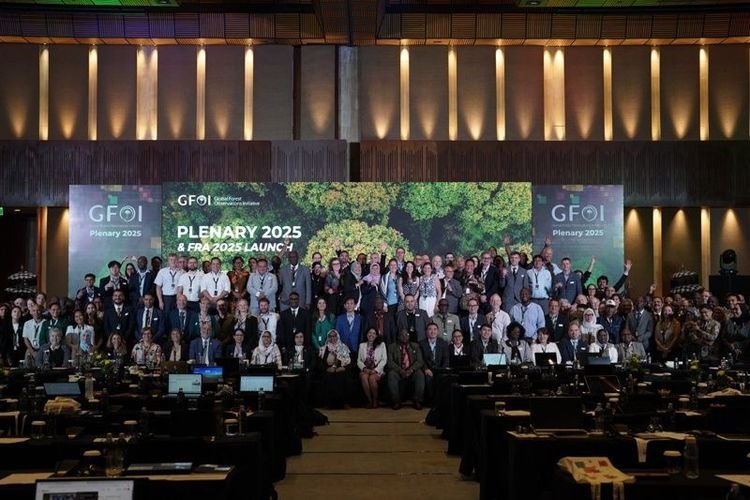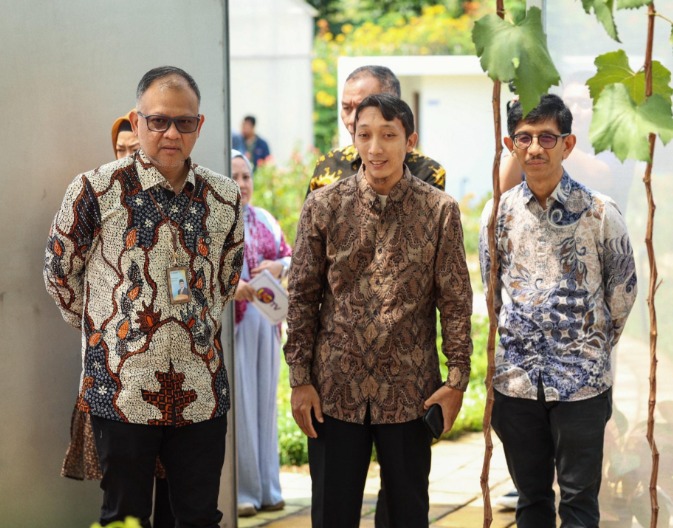Enviro News Asia, Jakarta – The West Java Center for Natural Resources Conservation (BBKSDA), under the Ministry of Forestry, has announced exciting news: the birth of a Javan banteng (Bos javanicus javanicus) at the Javan Banteng Reintroduction Center in Pangandaran, located within the Pananjung Pangandaran Nature Reserve, West Java. The banteng calf was born on Sunday, July 27, 2025, at approximately 6:00 AM.
The newborn calf is the offspring of a female banteng named Uchi, who was released into the wild by the Minister of Forestry, Raja Juli Antoni, along with three other bantengs as part of a reintroduction effort.
This program aims to reintroduce Javan bantengs into the Pananjung Nature Reserve—a location where the species once roamed naturally but was declared locally extinct.
These four bantengs were released during the official inauguration of the Javan Banteng Reintroduction Center on December 11, 2024. The recent birth marks the first successful natural reproduction of a Javan banteng at the reintroduction center.
Historical records show that Javan bantengs were last detected in the Pananjung Pangandaran Nature Reserve in 1979, with an estimated population of 60–90 individuals.
However, the eruption of Mount Galunggung in 1982–1983 deposited volcanic ash and other materials over the savanna grasslands, which were the banteng’s main food source.
This environmental change led to a sharp population decline, with the last sighting occurring in 2003.
The reintroduction of Javan bantengs into the Pananjung Reserve is part of a broader effort to boost their population and genetic diversity, particularly by integrating individuals from separate populations across different national parks in Java.
The Pangandaran Javan Banteng Reintroduction Center operates on a semi-natural breeding concept with two breeding pairs (four individuals).
These bantengs were sourced from three conservation institutions: one female (Uchi) from Taman Safari Indonesia Bogor, one female (Bindi) from Taman Safari Indonesia Prigen, and two males (Bejo and Senta) from Taman Safari Indonesia in Gianyar, Bali.
The center covers an area of approximately five hectares and is monitored by nine field personnel.
These staff members are responsible for feeding, providing supplements, checking animal health, monitoring breeding cycles, maintaining enclosures, and managing grazing fields and fencing.
Director General of Natural Resources and Ecosystem Conservation (KSDAE), Satyawan Pudyatmoko, expressed his joy and appreciation to BBKSDA West Java and its partners for the birth of the banteng calf.
He also shared that Minister of Forestry Raja Juli Antoni has named the female calf Exploitasia.
“May she continue to grow healthy and strong, and help strengthen the Javan banteng population in the Pananjung Pangandaran Nature Reserve,” Satyawan added.
The BBKSDA West Java medical team continues to closely monitor both the calf and its mother to ensure their health and well-being.
This birth brings renewed hope for the conservation of Javan bantengs and proves that Pangandaran is both a welcoming home and a suitable habitat for the species to thrive. (*)















